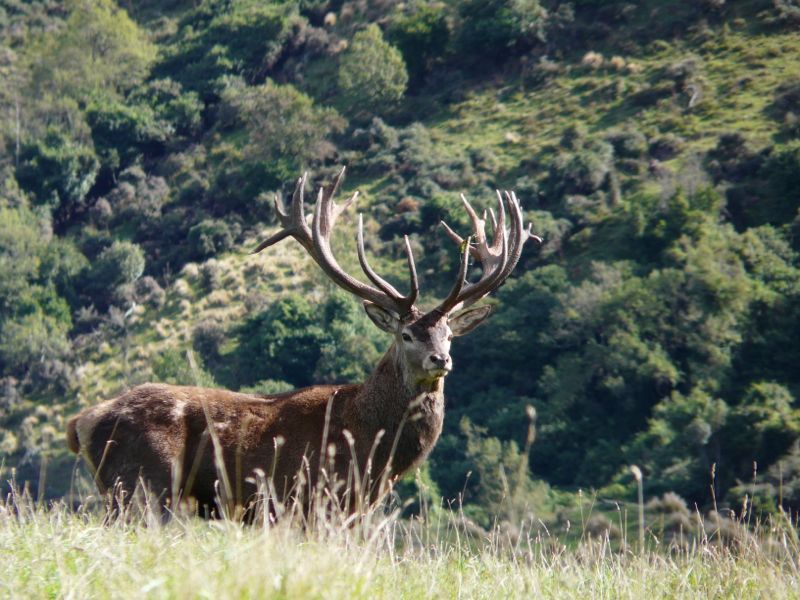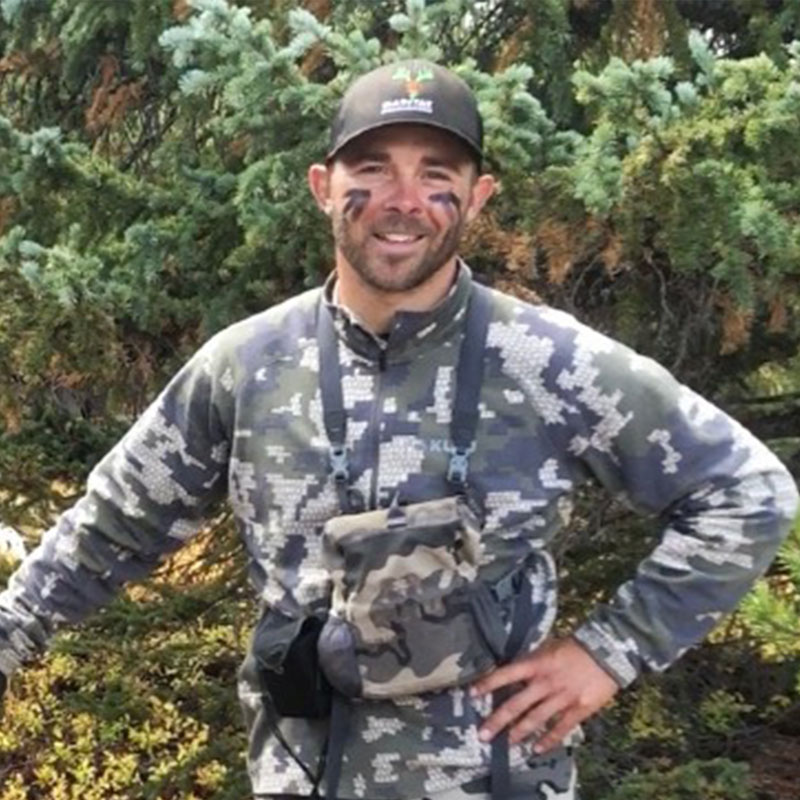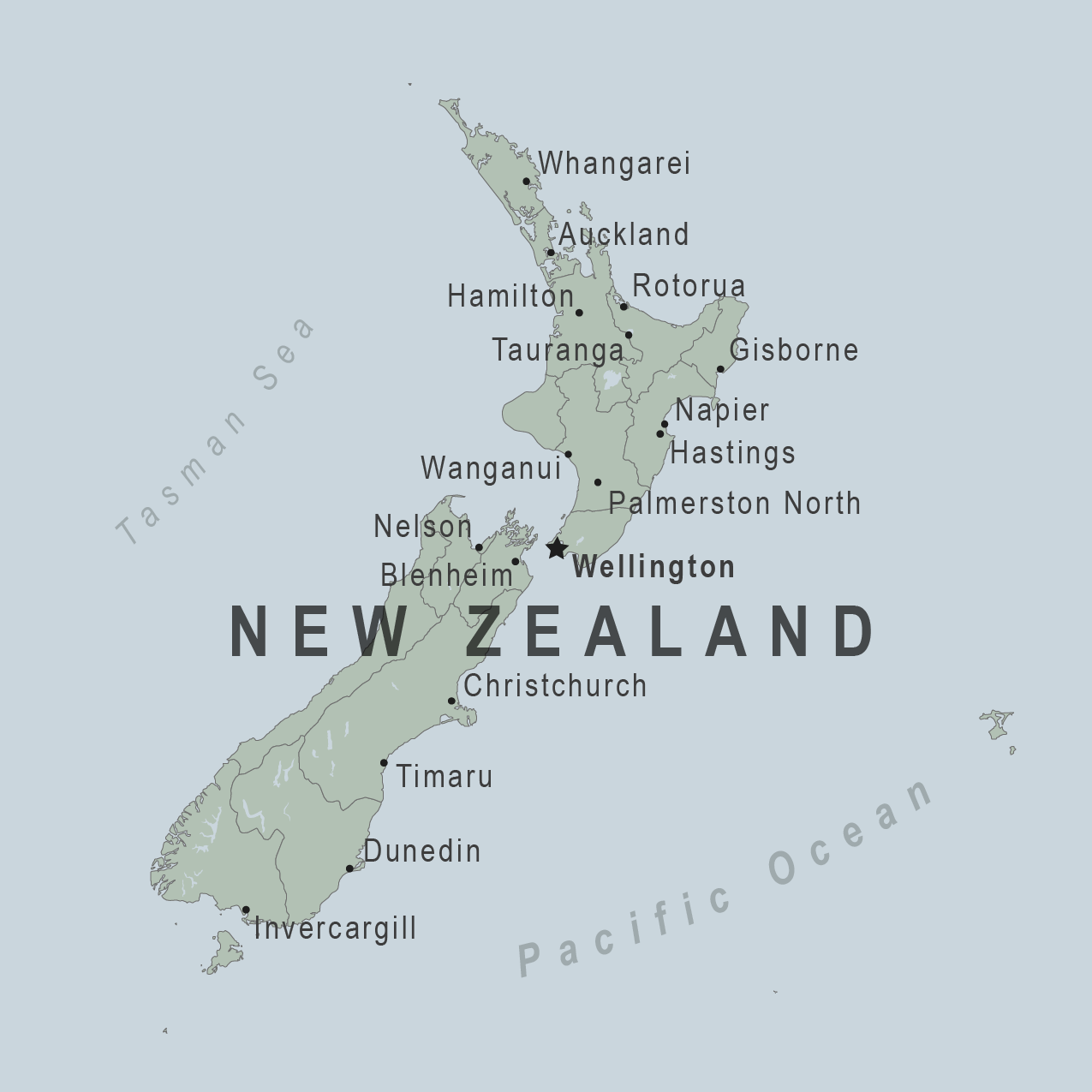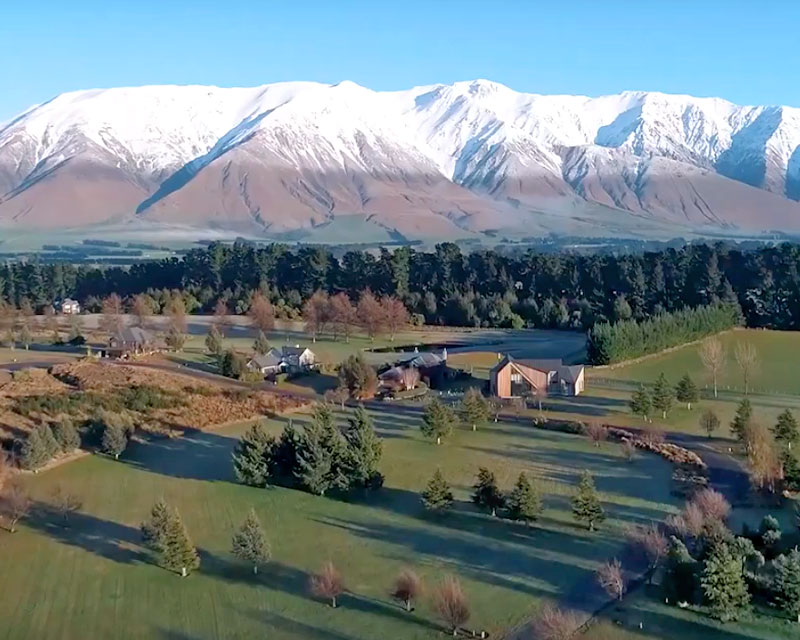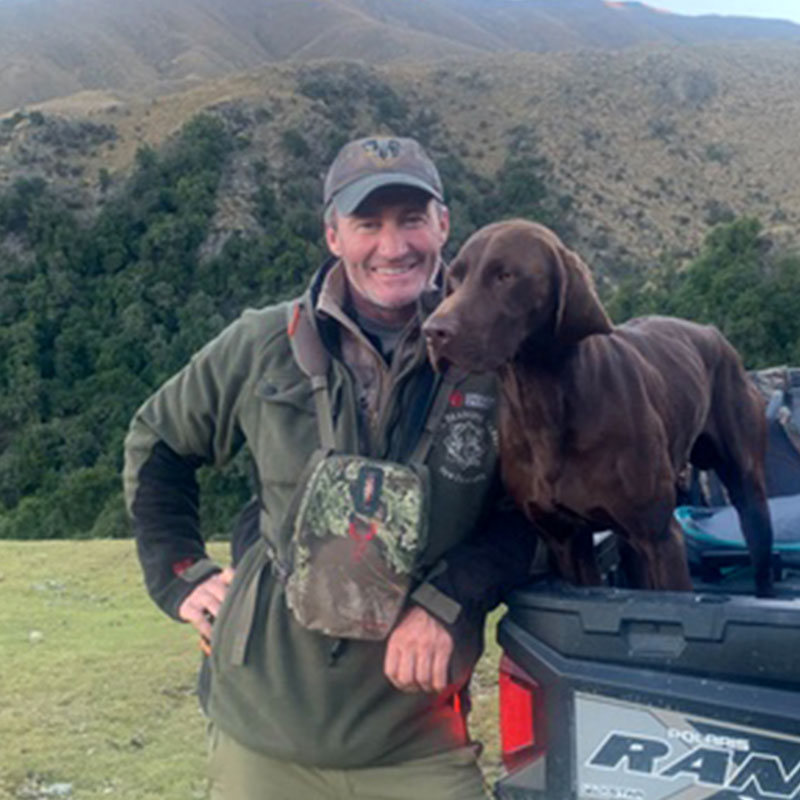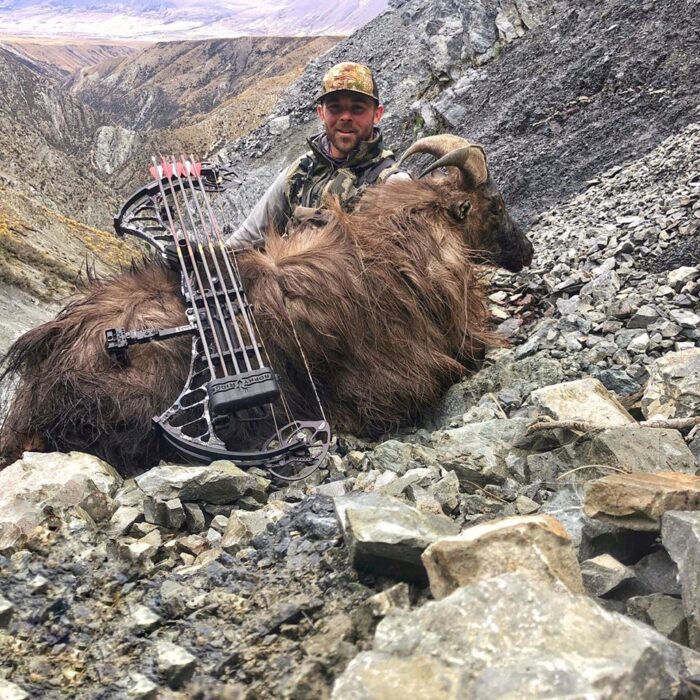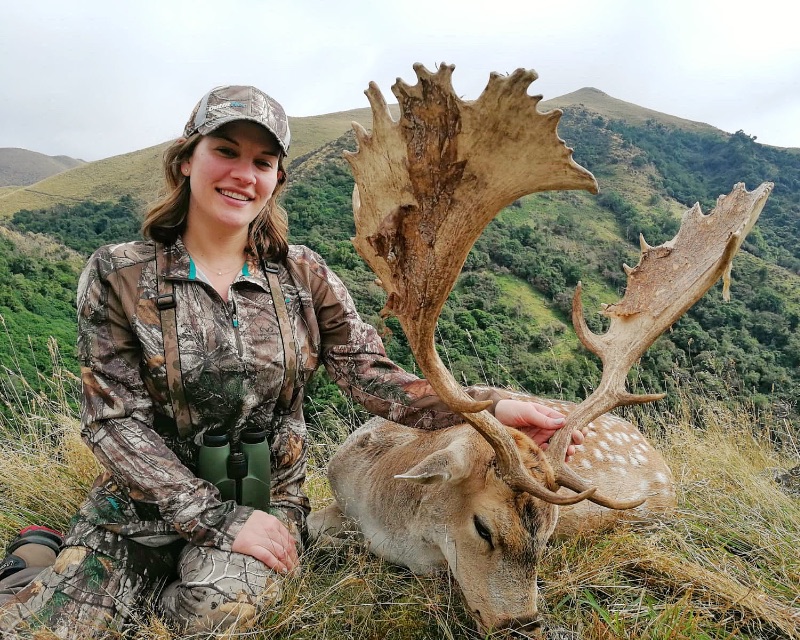New Zealand Eliminates Covid-19: When Will Hunting Resume?
It’s the hunt of a lifetime – the promise of enormous mounts and breathtaking vistas lure hunters to the wilds of New Zealand each year to stalk the legendary Red Stag. These hunts come at a premium price: guided hunts run anywhere from $6,500 – $15,000 on average, depending on the size of the animal you cull. This doesn’t include airfare, which tacks on an additional $2,300 on average for flights from the United States.
But, the price tag is worth it as soon as you take your first step into the high country in pursuit of your very own trophy stag. These hunts are a vital part of New Zealand’s economy, providing an estimated $50 million in revenue each year.
It has now become redundant to say this, but 2020 is different. The impact of COVID-19 globally has come in the form of closed borders and indefinitely-postponed plans. If you were one of the unlucky few to plan your once-in-a-lifetime New Zealand hunt for 2020, then the uncertainty of the pandemic hits hard. New Zealand-based outfitters are also reeling from the hit to their income.
International Sportsman talked with Kyle Windquist, a guide with Four Seasons Safaris, one of New Zealand’s leading outfitters, about the impact Coronavirus has had on the industry. He also shares advice on what hunters can do if they have been impacted by a forced change in plans, and how to prepare now for a future New Zealand hunt – giving us his all-time favorite species to stalk in the Southern Alps.
The current state of hunting in New Zealand
Today, hunting in New Zealand is restricted to locals only. The New Zealand government shut down international travel in March, at the height of the red stag rut. Talks are underway to open travel to the “trans-Tasman travel bubble” – the geographic area that encompasses the Tasman sea and includes Australia and New Zealand.
“There’s talk that come September, we may open the borders to Australia, but word on the street is that borders won’t open to anyone else until 2021,” Windquist said.
For outfitters, this hits the pocketbook hard. The $50 million-a-year industry is fueled primarily through international hunters, a large portion of whom are from the United States.
“Even if we open borders with Australia this year, the U.S. is further down on the list,” he said.
New Zealand reached an important and rare milestone in the battle against COVID-19. On June 8, the government announced that the country was officially COVID-free, with no active cases and no new cases being reported within the nation. New Zealand endured 1,154 positive cases beginning in February, and the country went under full lockdown on March 25. Between February and the end of May, there were 1,132 recoveries and 22 deaths attributed to Coronavirus. Prime Minister Jacinda Ahern officially re-opened the country to full operation with no restrictions on businesses or in-country travel on June 8, though international travel is explicitly off the table to non-New Zealand residents and non-essential workers.
“People here in New Zealand can go hunting. It’s no problem for us,” Windquist said. “It’s just about getting the borders open to let the international hunters in, because our market is to international hunters.”
He said that New Zealand outfitters rely on international hunters because the locals simply do not need guides to access public land, which makes up about 1/3 of the total land mass and is available for year-round hunting.
“It’s not like the States, where someone from Pennsylvania wants to hunt elk in Colorado, so they hire a guide,” he said. “It’s not like that here – anyone can go, so they wouldn’t hire an outfitter like they do in the States.”
This leaves outfitters juggling a tremendous amount of uncertainty. With the economic downturn that accompanied the global lockdowns, Windquist said a lot of would-be hunters may be considering holding onto their cash instead or asking for a refund on indefinitely-postponed 2020 hunts. Since outfitters must outlay thousands of dollars in advance of the hunts for equipment, preparing accommodations, and going on scouting expeditions, the industry is staring down a potential deficit.
“There’s definitely some anxiety for outfitters that don’t have another source of income,” he said. “If all they do is hunt and all their income comes from international hunters, they’re going to be sweating it right now. Will the borders open in 2021? Will there be new regulations? There’s a lot of unknowns right now.”
Some outfitters have a diversified stream of income and are in a better position to weather the economic upheaval. Four Seasons owner Shane Johnston operates a cattle ranch in addition to guided hunts, so he has shifted his energy toward that income-generating avenue while international hunts are on hold.
“He’s still focused on the hunting part of it, but he’s making sure his family’s fed and he keeps everything going. For the other outfitters that don’t have another way to make money, I’m sure it’s a very stressful time,” Windquist said.
Four Seasons typically books 40 guided hunts a year during the peak seasons in April-August (fall and winter in the southern hemisphere). Before Coronavirus was even a blip on the radar, the outfitter had fully booked out hunts for 2021. The advanced bookings provide another tangle in the Gordian Knot that is 2020: Should the country’s borders re-open to international travel in 2021, how do outfitters squeeze in the postponed hunts from 2020?
“Everybody wants to hunt the rut, and unfortunately if they missed out on 2020, you can’t just tell the guys booked for 2021, ‘Hey, we gotta push you back so the 2020 hunts can happen,” Windquist said. “We’re still problem-solving and trying to work with everybody. We know it’s tough, but we just have to wait this out and see when we can get you back in here. Everybody’s situation is unique, so we’re just doing our best to work with everybody and get them in when we can. At this point, we just need to know, is the country actually going to be open at that time or not?”
Windquist, who moved to New Zealand from Michigan in the United States one year ago, said the spirit of New Zealand outfitters hadn’t been hampered by the current trials.
“What I’m learning about Kiwi culture is that they don’t worry that much. They’re pretty faithful people who’ll say, ‘It sucks, but it’s going to be alright,’” he said. “They’re optimistic, resilient people. I wouldn’t say they’re too down, even though there are worries about what’s going to happen.”
Postpone – Don’t Cancel
What do you do if you booked your dream New Zealand hunt for 2020? Even with all of the uncertainty at play, your outfitter can work with you to make your hunt happen. Windquist said outfitters are the first people you should contact with your questions. Openings frequently pop up, even if a season is fully-booked.
“I would just get a conversation going if I was somebody who wanted to come here and hunt, just to see, what’s some availability,” he said. “I encourage people to start reaching out because it’ll give a little sense of relief to these outfitters who are worried because of the crash in the market.”
Now is a great time to plan a future New Zealand hunt
There’s a reason Four Seasons was already booked out through 2021, even before the pandemic hit – demand for these once-in-a-lifetime trips is high.
“It’s so beautiful in those rugged mountains, and you can see forever. The scenery here is so picturesque anywhere you go,” Windquist said.
New Zealand is among the top destinations for international hunters in pursuit of some of the finest game species on earth. The venerable Red Stag, along with other highly-sought game like the Chamois and Tahr, were imported to the island nation from Europe and Asia. As such, they have no natural predators and must be carefully culled to maintain the vitality of the species.
Given that there’s at least a two-year window to plan your New Zealand trip, you have time to prepare properly. Here are three things you can do during this time of waiting to be ready to hike the hills and take your quarry in the Southern Alps:
- Communicate with an outfitter
There’s really no other way to do a New Zealand hunt then through an outfitter. Not only do they know the land and where to find the animals, but they take care of all of the little details that a DIY-er could easily overlook.
“When you’re with an outfitter, the upside to that is they’re going to do all of the scouting. They’re going to know where the animals are. They’re going to have extra gear if you forgot your rain jacket,” Windquist said.
A local guide will know the up-to-date restrictions and regulations that impact the international hunting industry and can provide trustworthy information for someone planning a hunt a little further out.
“Check in with the outfitter and get a really good feel for them,” Windquist said. “Most people are straight-shooters. Shane, who I work for, is going to tell you how it is. If he’s got room for you, he’s got room for you. He’s going to get you here when he can and give you the best advice for the type of experience you’re looking for. You tell him what’s optimal in your mind in terms of dates and what species you’re after, and he’ll be honest and tell you what you should do.”
- Train for the Terrain
Hunting in New Zealand is no cakewalk. Given the extended timeframe to prepare, hunters need to be ready to break a sweat, get their heart rate up, and do some strength training before stepping foot on the mountains.
“You don’t want to find yourself all-of-a-sudden on your dream hunt, and you have to hike three ridges just to get where you need to be, and you’re miserable because you came unprepared,” Windquist said.
He added that from time-to-time, he’ll take out a hunter who did not prepare physically and mentally ahead of time.
“It’s almost shocking that people would dream their whole life to come on this big mountain hunt, and then they show up with 10 minutes of treadmill the week before,” he said. “It’s a big hunt, and you need to treat it like it. It will be more enjoyable if you’re in better shape.”
- Hone your shooting skills
It’s a mantra we repeat over and over on International Sportsman – practice the way you plan to shoot. If you’re planning a hunt in the mountains, practice shooting the way you will in that exact environment. It does no good to stand still and shoot at a static target if the reality is, you’re going to be shooting after having carried a heavy pack up and over half-a-dozen ridges.
“Plan for real-life situations, like shooting from a pack or shooting while you’re out of breath,” Windquist said. “You do this so that, in the moment, you’ve done it a hundred times already, and your body just knows what to do.”
Fitness and accuracy – these are the primary concerns for a person who plans to take on the wilds of New Zealand in pursuit of its legendary game. A good outfitter will make sure all of the other details are taken care of.
“When you’re with an outfitter, you just need to come in shape, come with rain gear and warm gear, and be a good shot,” Windquist said. “Be comfortable with your rifle shooting at 300 yards and your bow at 60 yards. Know your weapon, especially for bow hunters. If you’re shooting uphill, you’ve gotta use a different pin, and if you’re shooting downhill, you’ve gotta use a different pin. I mean, we’ve all been there. We’ve made a bad shot, we’ve missed. So you have to do everything in your power to take it seriously, because you want to be successful. It’ll make the whole trip so much better when you are prepared.”
An outfitter’s favorite quarry
The Red Stag rut happens every March, and it’s the most-popular hunt by far. Trying to squeeze in a hunt for March 2021 is next-to-impossible at this point. But there are other majestic game available for the taking, and Windquist says his favorite game animal also provides the most challenging hunt: the Tahr.
To New Zealanders, bull Tahr are some of the toughest and most widely respected animals on the island. Because of the nature of where they live and their keen senses, the Tahr have earned a reputation for being both a challenging and rewarding hunt. Bull Tahr are known best for their large blonde mains, which develop to their fullest in the winter months. Tahr is the only other species besides the lion that has a main.
For Windquist, the Tahr provides the quintessential hunting experience.
“I’m a bowhunter, and I love chasing anything with my bow,” he said. “Tahr is a difficult hunt, and you have to be patient. It’s in wide-open country, and you have to hike up mountains to get the them. You plan your route in. You see a big bull up there, and you decide, ‘Okay, how am I going to get within bow range – or rifle range – of that animal?’ You start looking at the topography of the land. It’s like a puzzle you have to put together, and obviously, it’s a shifting puzzle because it’s nature. The wind and the animals are always shifting. So, I really enjoy problem-solving out there for Tahr.”
We’re in this together
There’s still too much uncertainty to be able to make firm plans for a New Zealand hunt. But hunters and outfitters can still help each other out in important ways.
“It’ll create some hope in the outfitters to say, ‘Hey, we still want to come. We’re still thinking about coming, so let’s keep that conversation going,’” Windquist said. “As for the hunter, I think it gives them an optimistic mindset to be looking forward to that hunt. I think with the world in this crazy state, it’s good for them to keep their minds on something positive, looking forward to their next adventure. Keeping your mind off of the negative is quite important. I just encourage people to reach out to an outfitter and start a conversation.”
If you had to put your 2020 New Zealand hunt on hold, or if you are thinking about booking a future hunt, there are things you can do today to lay the groundwork for a memorable experience down the road. Call you outfitter and talk with them about your goals. They exist to give you a hunting experience you will never forget, so rely on them to help you plan for that day when borders are open once again, and you have the chance to stalk an exotic trophy in some of the most-breathtaking territory on earth.
Jeremy Mallette is co-founder of International Sportsman. An avid hunter and outdoorsman, he has spent more than a decade in the outdoor industry, from hiking and camping to silencers and hunting. His father taught him to shoot at age six, and he received his first firearm at age eight — a 1942 Colt Commando .38 special revolver. He enjoys yearly trips to Kansas for pheasant hunting, spending time with his children at the deer lease, and collecting unique firearms.

